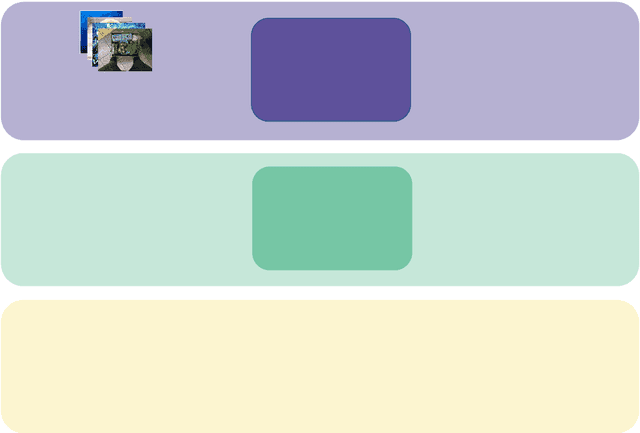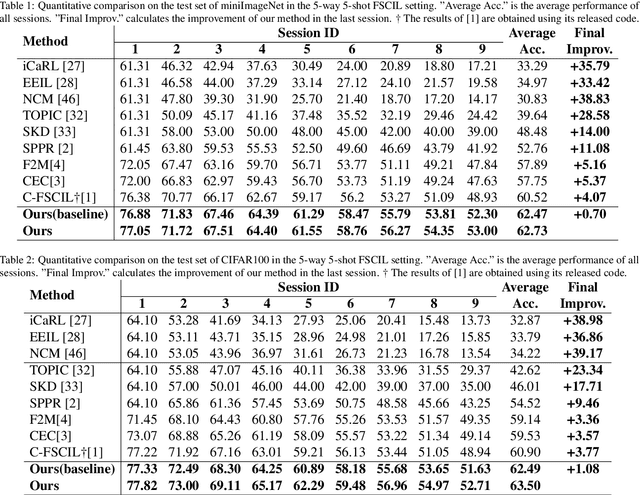Shuangmei Wang
TLCE: Transfer-Learning Based Classifier Ensembles for Few-Shot Class-Incremental Learning
Dec 07, 2023



Abstract:Few-shot class-incremental learning (FSCIL) struggles to incrementally recognize novel classes from few examples without catastrophic forgetting of old classes or overfitting to new classes. We propose TLCE, which ensembles multiple pre-trained models to improve separation of novel and old classes. TLCE minimizes interference between old and new classes by mapping old class images to quasi-orthogonal prototypes using episodic training. It then ensembles diverse pre-trained models to better adapt to novel classes despite data imbalance. Extensive experiments on various datasets demonstrate that our transfer learning ensemble approach outperforms state-of-the-art FSCIL methods.
P3DC-Shot: Prior-Driven Discrete Data Calibration for Nearest-Neighbor Few-Shot Classification
Jan 02, 2023Abstract:Nearest-Neighbor (NN) classification has been proven as a simple and effective approach for few-shot learning. The query data can be classified efficiently by finding the nearest support class based on features extracted by pretrained deep models. However, NN-based methods are sensitive to the data distribution and may produce false prediction if the samples in the support set happen to lie around the distribution boundary of different classes. To solve this issue, we present P3DC-Shot, an improved nearest-neighbor based few-shot classification method empowered by prior-driven data calibration. Inspired by the distribution calibration technique which utilizes the distribution or statistics of the base classes to calibrate the data for few-shot tasks, we propose a novel discrete data calibration operation which is more suitable for NN-based few-shot classification. Specifically, we treat the prototypes representing each base class as priors and calibrate each support data based on its similarity to different base prototypes. Then, we perform NN classification using these discretely calibrated support data. Results from extensive experiments on various datasets show our efficient non-learning based method can outperform or at least comparable to SOTA methods which need additional learning steps.
 Add to Chrome
Add to Chrome Add to Firefox
Add to Firefox Add to Edge
Add to Edge